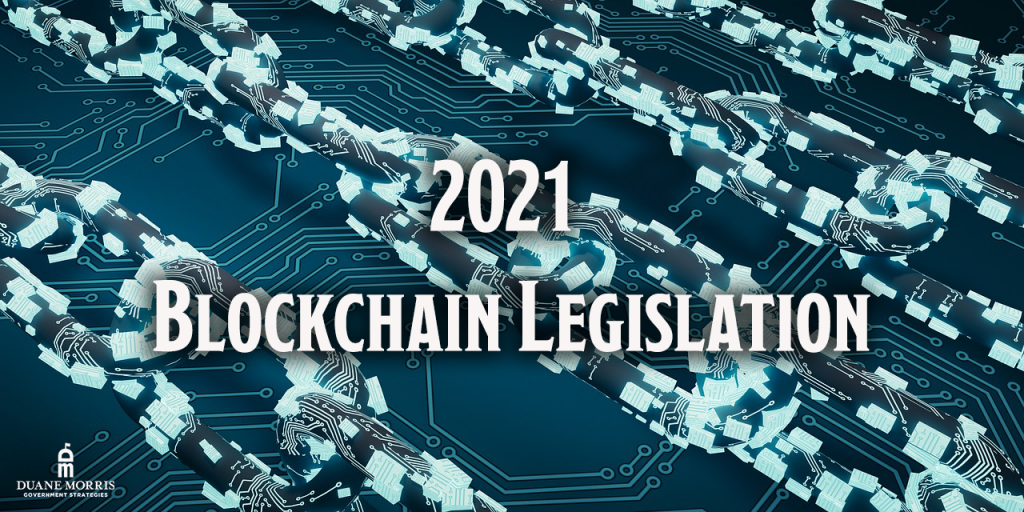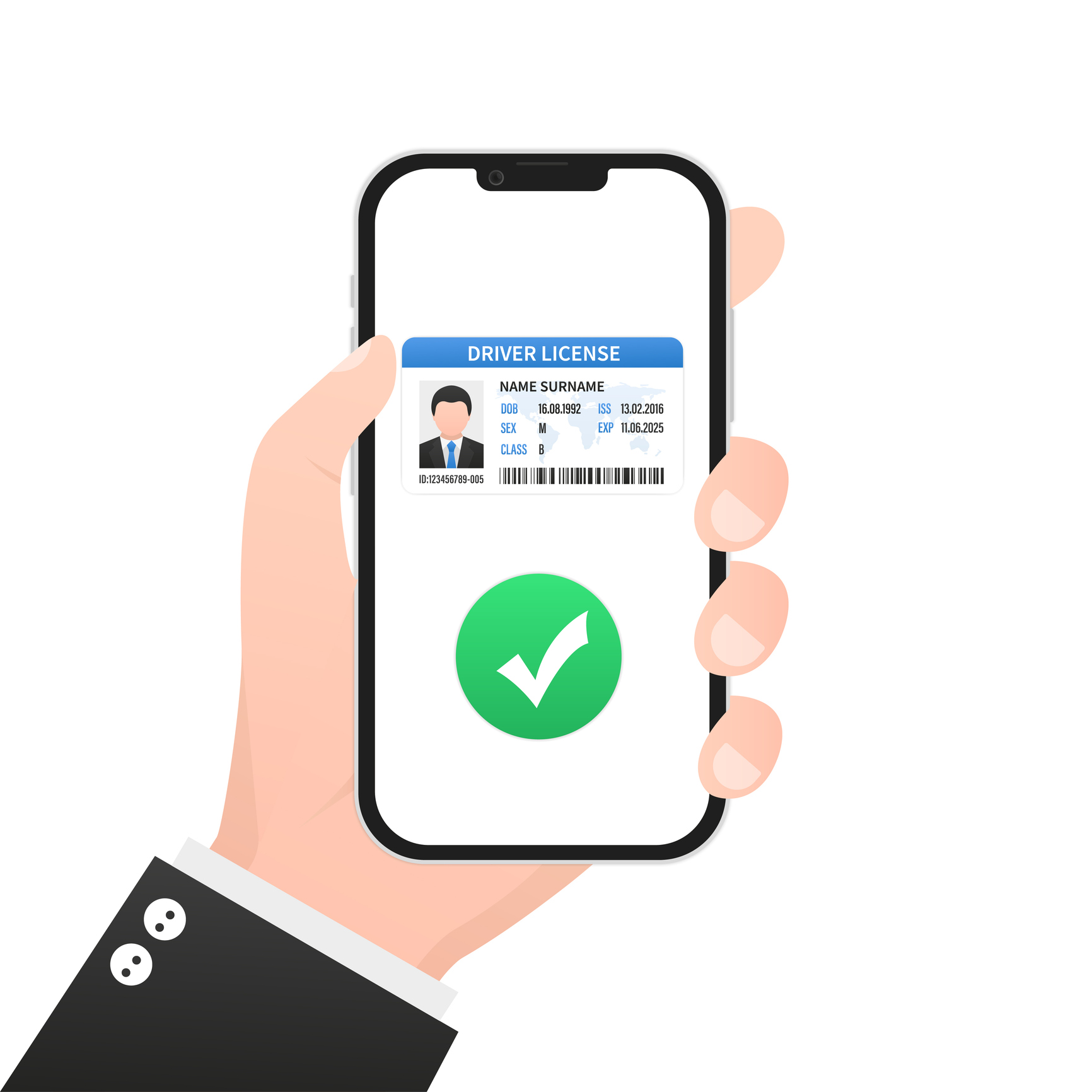
In June, DMGS covered cryptocurrency legislation and provided the latest updates in Arizona, Florida, Hawaii, Michigan, Pennsylvania, and Texas. Lawmakers are also noticing the technology behind cryptocurrency and considering various pieces of blockchain legislation.
Blockchain technology is essentially a more nuanced database. Blockchains collect information in groups, a.k.a. blocks, which hold specific sets of information. When the storage capacity of a block is filled, they are chained to previously filled blocks, forming a chain of data – a blockchain. While cryptocurrency is noted for using blockchain technology, other evolving uses include online voting, medical records, insurance policies, property and real estate records, copyrights and licenses, and supply chain tracking.
In 2021, at least seventeen states have now introduced blockchain legislation.
Florida
Florida lawmakers introduced at least one piece of blockchain legislation in the 2021 session.
HB 4119, which the Agriculture & Natural Resources Appropriations Subcommittee killed, would have created the Food Equity & Racial Disparities in Food Supply Chain Blockchain Pilot in St. Petersburg. The bill would have expressly provided a nonrecurring sum of $1 million for FY 21-22 to the Department of Agriculture and Consumer Services to fund the pilot program. The bill’s appropriations project request states the funding would have been used to develop a foundational, customizable food supply chain system that allows for the integration of a producer’s legacy system with the ability to add on future features that meet the needs of FDACS departments” food safety, food worker conditions, food counterfeiting and traceability of regulatory compliance.
Specifically, the funds would have been used to develop a blockchain-based mobile app that directly connects minority farmers to minority consumers and a minority-owned grocery store, farmers market, restaurant, and food bank in the pilot area. The app would have provided food supply chain track & trace capability and a qualitative and quantitative study.
Nevada
Assembly Bill 163, introduced earlier this year in Nevada, addresses blockchain technology related to elections. Expressly, the bill authorizes a county or city clerk to use a voting system with blockchain technology with approval from the Secretary of State.
Another bill, Senate Bill 110, would create the Emerging Technologies Task Force under the Department of Business and Industry. The Task Force shall, amongst other items, address methods to comprehensively incorporate blockchain technology into all levels of government and shall issue a report concerning its findings and recommendations on or before February 1 of each year.
New Jersey
A few pieces of blockchain legislation have been introduced so far in this session by New Jersey state lawmakers. A2891 (and Senate companion S3132) would create the Digital Asset and Blockchain Technology Act to regulate digital asset business activity. The bill would define a “digital asset” as a representation of economic, proprietary, or access rights that is stored in a machine-readable format, has a transaction history that is recorded in a distributed, digital ledger or digital data structure in which consensus is achieved through a mathematically verifiable process.
Digital assets may include digital consumer assets, digital securities, and virtual currency. The bill further states that a person is not allowed to engage in a digital asset business activity (or hold itself out as being able to engage in a digital asset business activity) unless they are licensed by the State Department of Banking and Insurance or has filed a pending license with the Department. A2891 was passed unanimously by the Assembly and awaits consideration by the Senate.
A1178, which passed both the Assembly and Senate, would permit corporations to use blockchain technology for certain recordkeeping requirements. Current law requires corporations to keep records containing the names and addresses of all shareholders, the number, class, and series of shares held by each, and the dates they became owners of the shares. Under the bill, such corporate records of shares may be kept on an electronic network.
Rhode Island
Rhode Island lawmakers introduced H 5425 earlier this year. The bill, the Rhode Island Economic Growth Blockchain Act, argues that the state must compete in the 21st-century economy and thus must offer a business environment for blockchain and technology innovators. The bill proposes a comprehensive regulatory technology sandbox for innovators to develop the next generation of digital products and services in Rhode Island.
The bill would establish the Rhode Island Blockchain Technology Advisory Council, which would support the state’s research institutions, promote entrepreneurial development, enable all organizations to become more innovative, and perform any other advisory functions the legislature may designate.
Latest News
Photo credit: iStock.com/StudioGraphic As technology continues to evolve, digital driver's licenses (also known as mobile IDs) are gaining traction across the United States. States are increasingly exploring legislative measures to modernize driver identification systems, enabling [...]
Photo credit: iStock.com/Funtap As cryptocurrency continues to shape global financial systems, U.S. states are increasingly introducing legislation to regulate its use. From allowing payments in digital currencies to banning cryptocurrency ATMs, state governments are focusing [...]
NetChoice and AI regulation In this episode of the Back in Session podcast, hosts Ryan Stevens and Ryan DeMara sit down with Amy Bos, Director of State and Federal Affairs at NetChoice, to discuss the [...]
Photo credit: iStock.com/yacobchuk The use of cell phones by students in classrooms is on the rise, despite 77% of schools prohibiting cell phones at school for non-academic use. With students often disregarding these rules or [...]





Stay In Touch